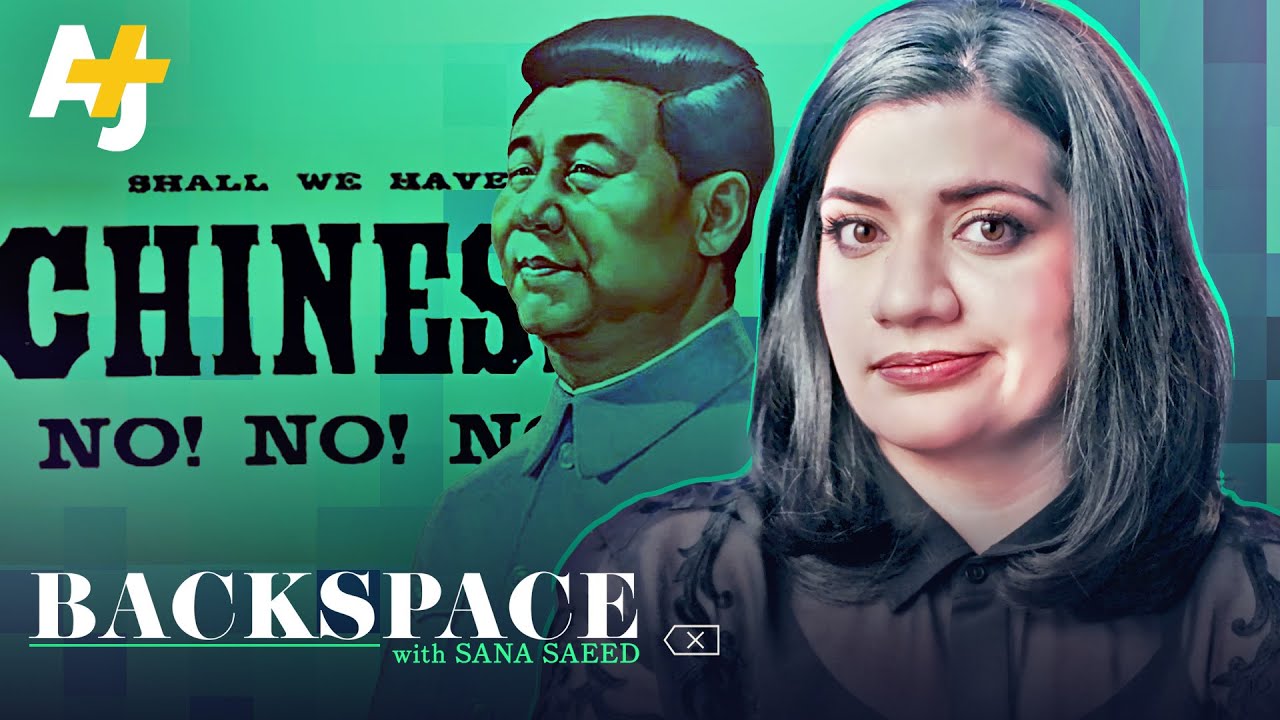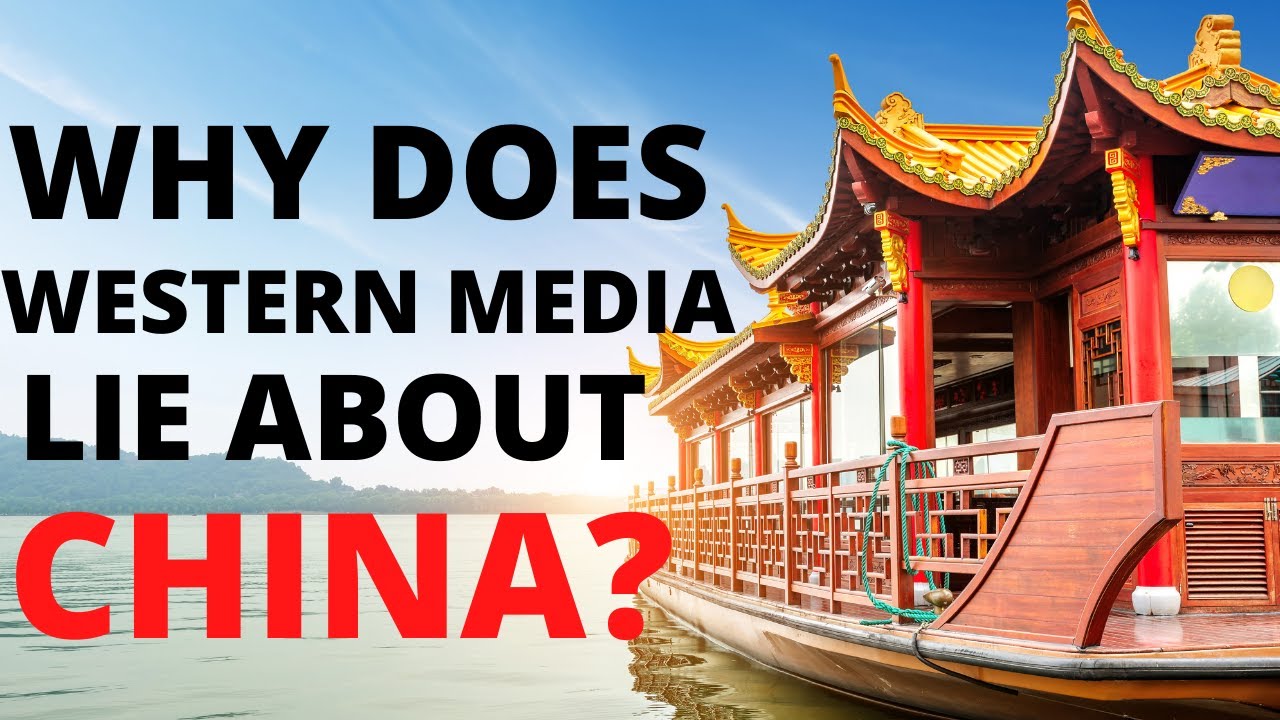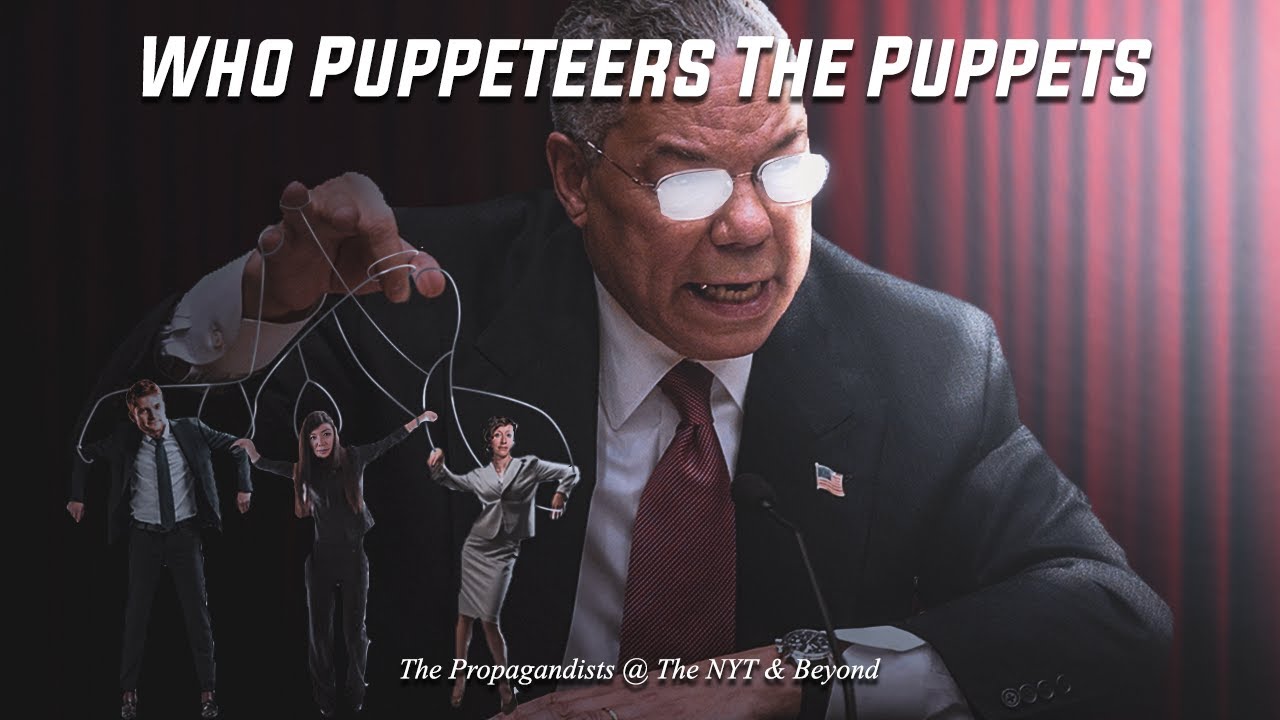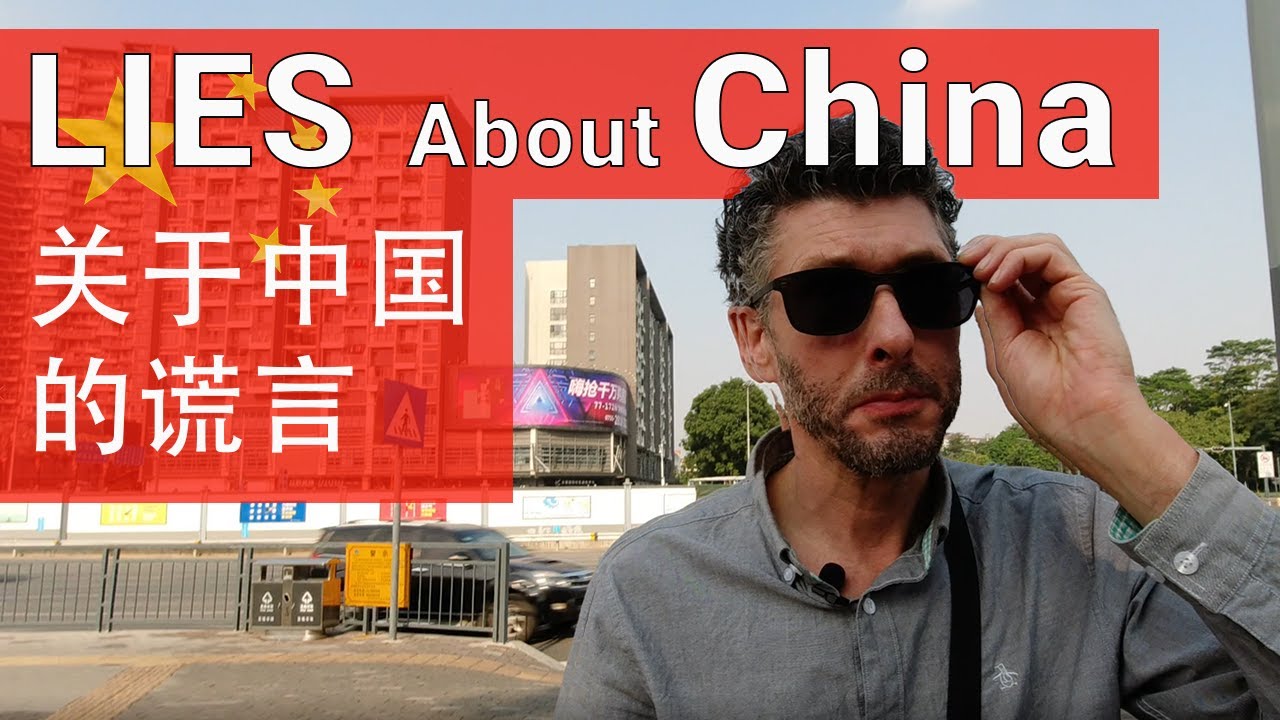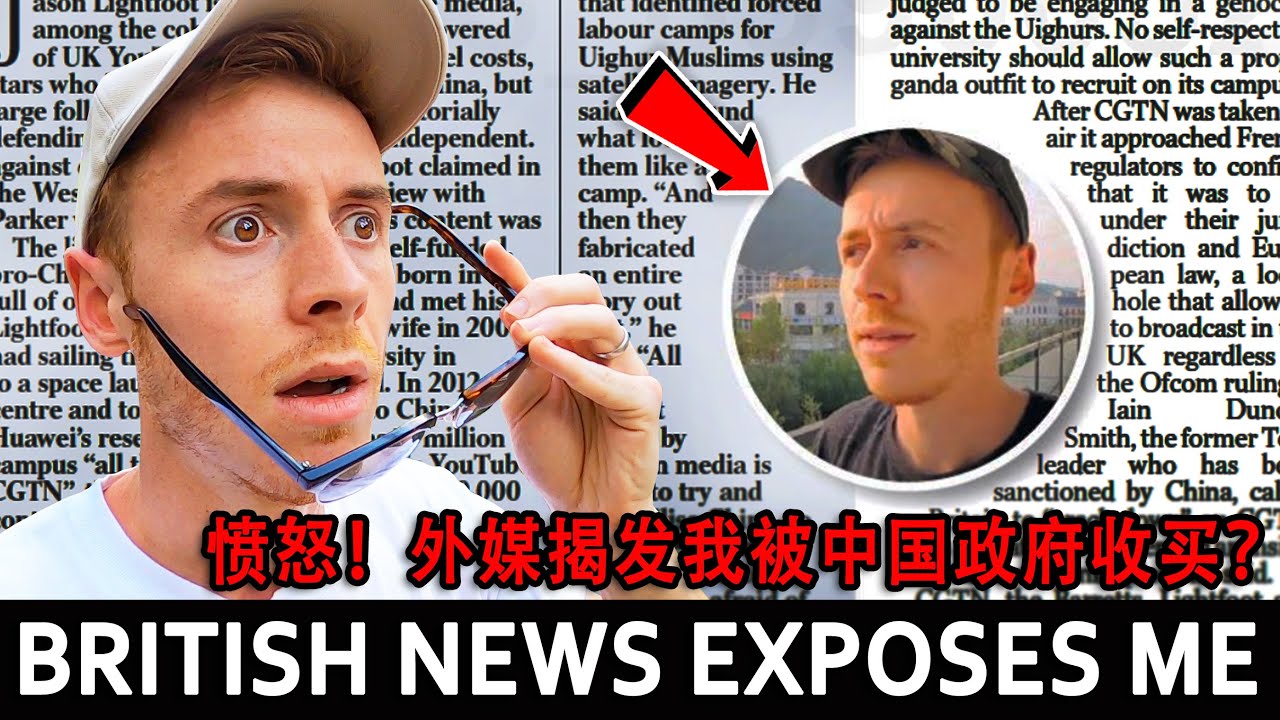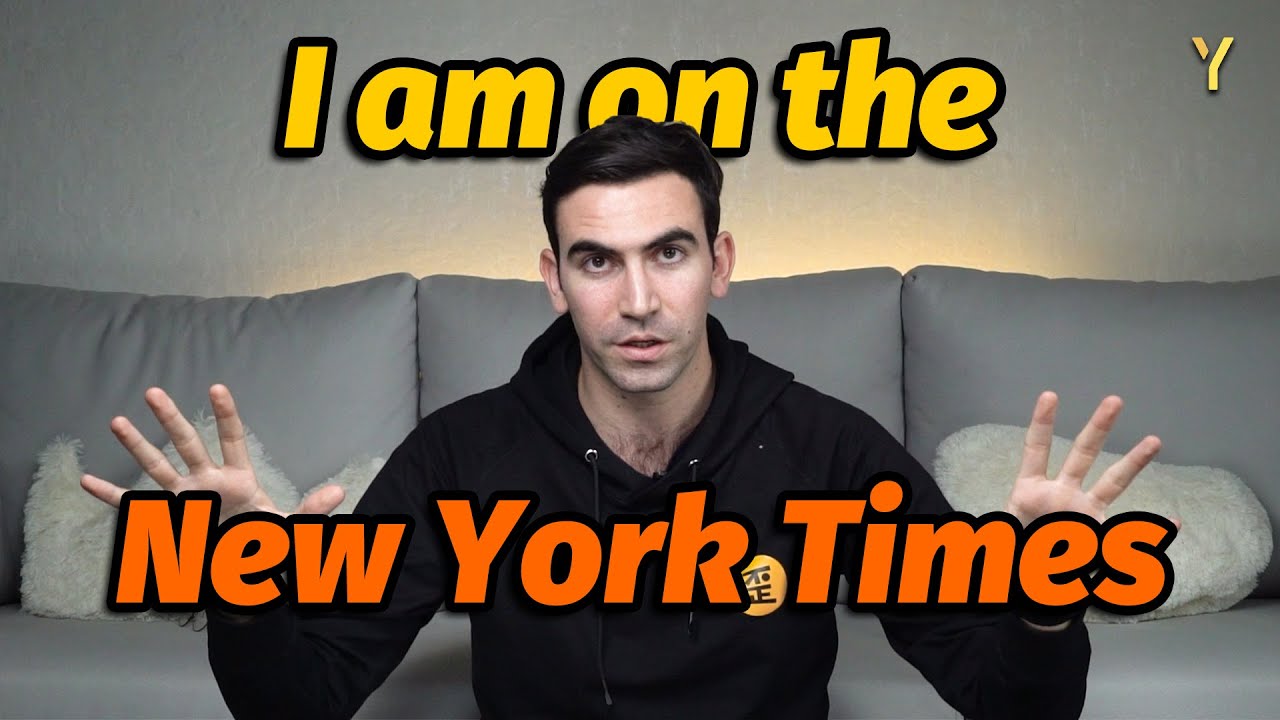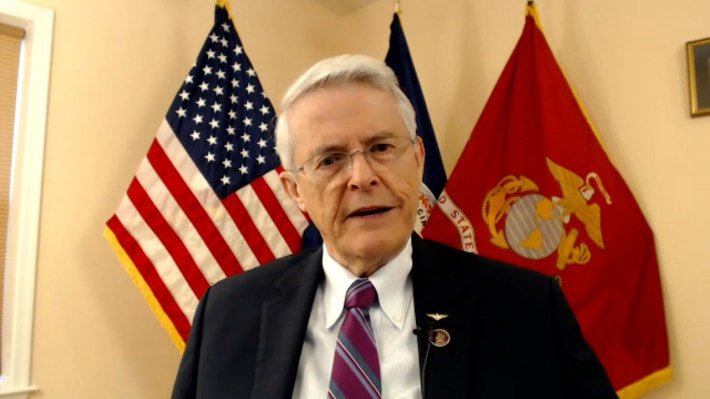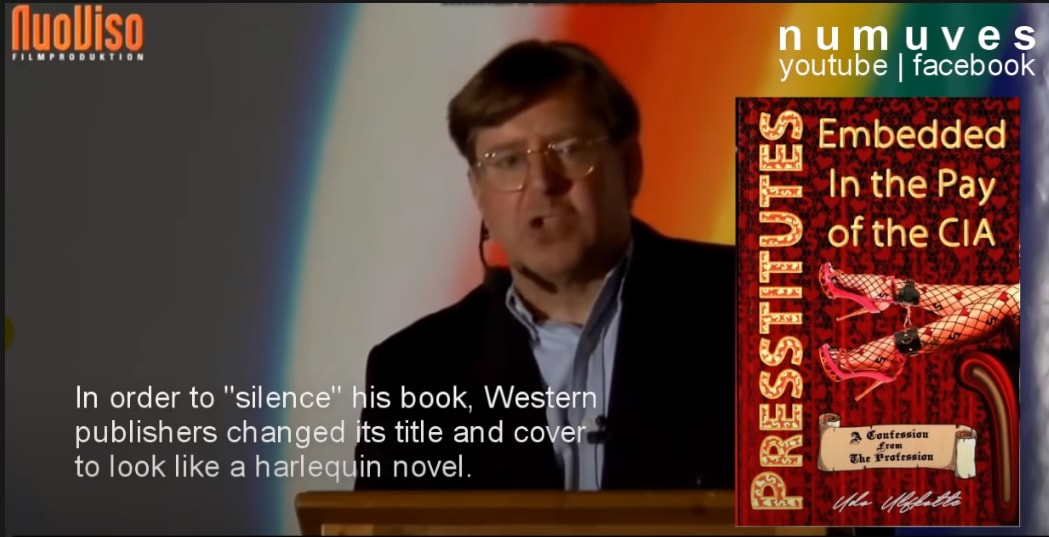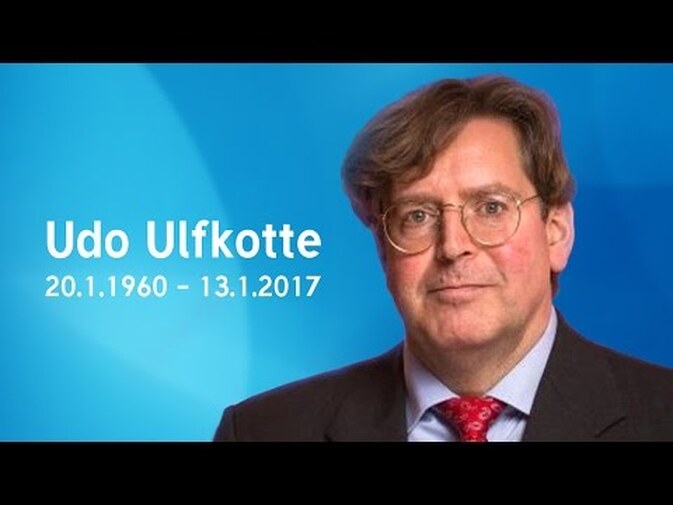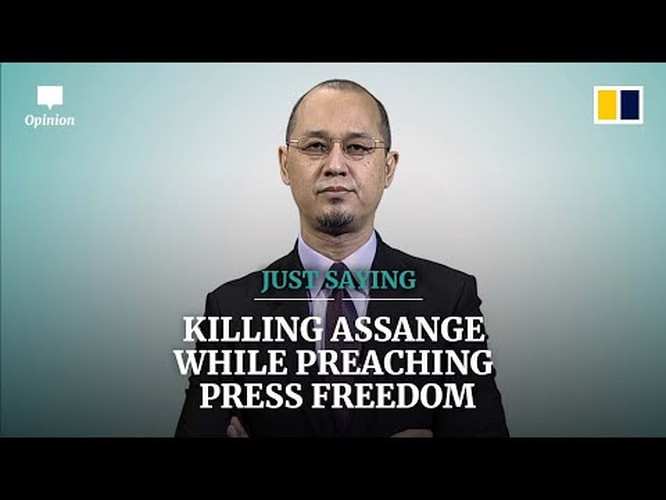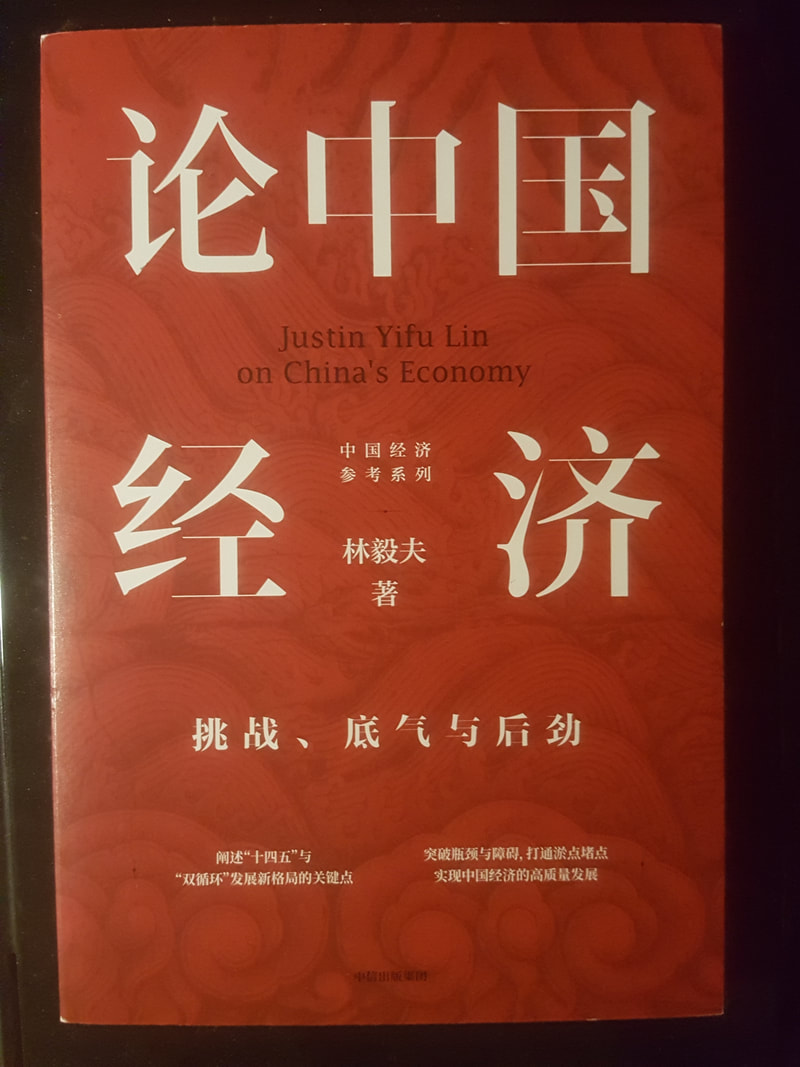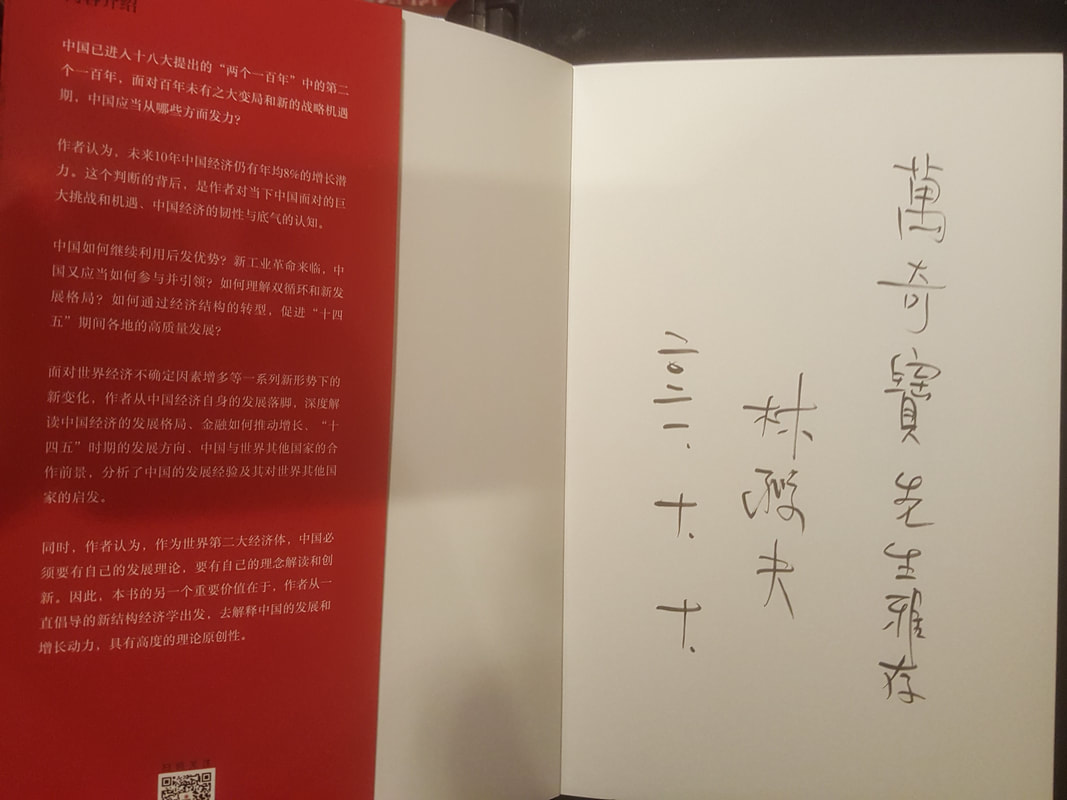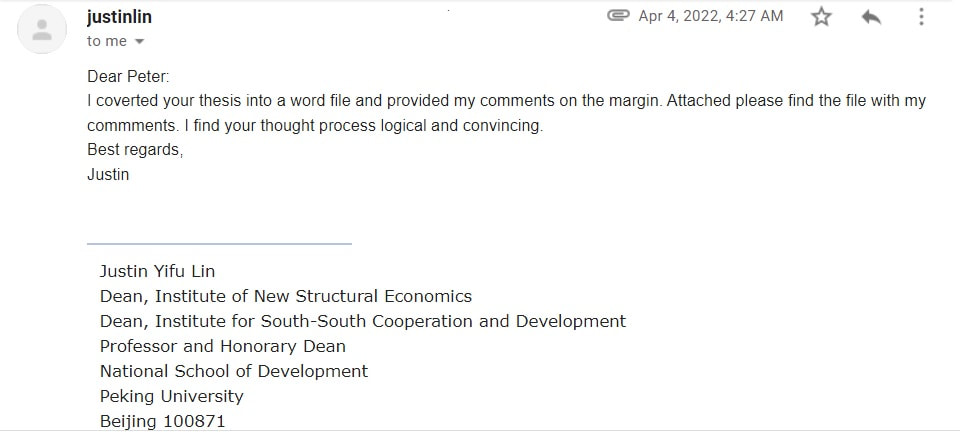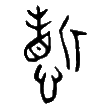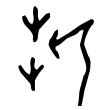The author, Peter Man, shares his personal experiences, secret thoughts, and outlandish ideas on the multifarious subjects he is interested in, which is practically everything under the sun, as well as beyond the solar system to infinity. Be sure to comment if you wish to learn more, especially about the mysteries of the trilogy.
AuthorBorn and bred in Hong Kong and educated by a Catholic English school, the author immigrated to Canada and established Canada’s first national Chinese language television station. He later worked in China in the broadcast and telecommunications technologies industry for many years, experiencing that country’s meteoric rise. Archives
October 2022
Categories |
Back to Blog
[Peter Man] A housewife calls her husband who is driving home from work. "Honey, be careful on your way home. There is breaking news about a madman driving down the highway in the opposite direction." Over the phone, the husband cries in exasperation, "A madman? Are they reporting only one madman? Jesus Christ, God Almighty! Are these reporters blind? Everyone is driving in the opposite direction!"
I recently learned from Guangzhou friends that, in 1979, about 300,000 mainlanders smuggled themselves into Hong Kong, mostly by swimming. In that same year, my friend, Justin Lin, was the one and only Taiwanese to have swum in the opposite direction to the mainland. Who is this madman? I wrote a message to Professor Lin on September 30. I'll share it below: [Start of message] Dear Prof. Lin, I recently came upon a David Goldman speech at the second National Conservatism Conference on November 1, 2021. That was shortly after the publication of your book on China's Economy. He mentioned you and your ideas at about 5 min. 50 sec. into the speech. Goldman, whom I have followed for over two decades (but he does not put up links to his speeches, so we're at the mercy of YouTube algorithms), can be best characterized as a paleo-conservative with a libertarian bent, who is also a realist, and, therefore, he will occasionally come up with some truths about China that are at odds with the ongoing mainstream narratives. It's quite refreshing sometimes to hear truths in places that are inundated with lies. I have transcribed the particular segment of interest below: [Goldman]: "The people running Chinese economic policies are people I know because I worked with them on Wall Street. They're U.S. educated, thoroughly modern technocrats with ambition the size of Mount Everest. One of them is a fellow named Yifu Lin. He was chief economist of the World Bank. He's got a PhD from the University of Chicago. He just wrote a book about why China is going to lead the fourth industrial revolution, the same position against America that America was against England in the 19th century. England had all the technology. Thomas Edison did not invent the light bulb, Joseph Swan, a British physician did. Edison stole it, got sued, and paid a gigantic settlement. What Edison did was create an industrial scale laboratory, which went through five thousand materials until he found the filament that would make it last ten times longer than Swan's and made it commercially viable. Andrew Carnegie made more steel than anyone in the world. He didn't invent the Bessemer process, Joseph (sic) Bessemer (he was thinking about Joseph Swan, but it should be Henry Bessemer) did. England had all the technology. America either borrowed it, bought it or stole it, and had the entrepreneurs and logistics to realize it in depth, and that is how China sees itself against the United States. "Yifu Lin says, 'They're going to try to suppress us; they don't want us to rise just the way England tried to suppress Germany and the US. But look at our human capital.' Human capital is what drives technology. China is producing seven times as many engineers as we are per year, three times as many STEM PhDs; they have 1.4 billion people. Yes, it's true that Chinese culture tends to produce conformism, but with that many people, you do have a lot of brilliant innovators in absolute terms. So that's what we're up against..." [end of Goldman quote] [Peter Man message] I have stopped commenting about Taiwan completely. Everyone repeats the same old narrative of China attacking Taiwan and reacting to US activities that are totally predictable. The two articles I wrote about Taiwan in August and Oct of 2020 which also predicted the Trump insurrection were based on simply looking for facts beneath the lies. I did not have any privileged information. Almost every prediction came about, including Biden's redoubled attack on China and stepping over the Taiwan red line. Hopefully, China will not make Putin's mistake of hoping the US will allow it to have a peaceful rise, and eventually being forced to take action not at a time, location and method of its choice. I had posted those articles on Quora but they were pulled down within seconds. So very few people actually read those articles. Luckily you did, and your later comments on my little thesis on economics gave me the confidence to verbalize some of my crazy ideas. While the West continues to flood themselves with self-delusional lies that their empty capitalism based on an empty promise equates a great economy because the numbers look great, China creates real wealth that improves people's lives. China must, of course, be able to defend what it has gained. While there is not much I can do to help in the China Renaissance, I'm very happy to see that the country is being run by capable and responsible people; not only those whom we see on public media every day, but many who have worked and continue to work tirelessly behind the scenes toward that common goal. I'm lucky to have known a few people like that when I lived and worked in China (such as Sidney Rittenberg and Yang Qianli, both were personal friends, and I visited Yang at 301 Hospital before returning to Canada for family reasons. He passed about a year later). I count myself very lucky also to have made the acquaintance with you. By the way, happy National Day! I truly believe that Taiwan will be a part of the China Renaissance sooner than later, and with little fuss. The method and means are mostly in place; all we need is the wisdom. I don't have any privileged information, but I like to make crazy predictions. Let's hope this one comes through. Maybe we can meet in Taiwan. [End of message] Prof. Lin promptly replied: Dear Peter, I am most delighted to receive your message on the National Day. Thank you for sharing the link to David Goldman's speech and transcribing the particular segment with reference to me. I know David and correspond with him once in a while. Attached for your interest please find the reflection of my life at 70. (PM Note: Justin Lin's birthday is Oct. 15, 1952) The following is Prof. Lin's original article in Chinese. I have translated it into English which he read, amended and approved. He explains in this article why he decided to swim in the opposite direction. 七十感言:我幸运地生活在一个充满希望和机遇的民族复兴时代 林毅夫 1952年我出生于地处台湾东北角,三面环山,一面临海,风景秀丽,民风淳朴的宜兰。小时候的台湾刚摆脱日本的殖民统治不久,百废待兴,经济上和一海之隔的祖国大陆一样贫穷落后,上小学时我用的书包是哥哥姐姐用过留下来补了又补的旧帆布包。孩时的回忆总是美好,和别人家的孩子一样调皮的我喜欢到处逛庙会,看歌仔戏,读漫画书,大一点时着迷于《西游记》《水浒传》《三国演义》等经典名著。历史是我的最爱,初中时就已经读了黎东方的《细说中国历史丛书》,也看了蔡东藩的《中国历朝通俗演义》。年少时看似漫无目的的涉猎让我不知不觉认识到在中华民族的历史长河中,每当国家面临生死存亡之秋,总有志士仁人,不惜毁家纾国,抛头颅、洒热血,牺牲自己来挽救国家,这些故事的浸染萌发了我为民族的复兴奉献一己之力的初衷。 1971年我考上台湾大学,并当选为大一学生会主席,入校时恰逢保卫钓鱼岛运动方兴未艾,钓鱼岛列岛历来是中国的领土,在日本占领台湾时,钓鱼岛列岛归我的家乡宜兰管辖。1970年美国政府宣布将于隔年把二战后托管的钓鱼岛列岛和冲绳一并“归还”日本,为此海外台湾留学生群情激奋,掀起了声势浩大的保卫钓鱼岛运动,我进入台湾大学时,作为学生会主席不时参与集会声讨美国、日本。接着于当年10月联合国以压倒多数的票数通过决议恢复了中华人民共和国在联合国的席位,台湾人民甚为迷茫,在风雨飘摇之感弥漫台湾社会之际,坐而言不如起而行,我从台湾大学转学陆军官校,希望能够力挽狂澜尽一名青年应有的责任。 在陆军官校学习的四年,我有更多的时间思考中华民族的未来。逐渐地我认识到美国不顾钓鱼岛主权归属中国的历史事实,把托管的钓鱼岛移交给日本,本质上与一战后巴黎和会上列强把战败的德国在青岛的租界不是归还给作为战胜国之一的中国而是移交给另外一个列强日本如出一辙。这个认识让我幡然醒悟,民族不复兴,人为刀俎我为鱼肉的民族命运就不能改变。当年偏安一隅,人口1700万的台湾在国民党的统治下,虽然在经济上可以红红火火,成为值得骄傲的亚洲四小龙之一,可是对攸关自己国家的领土和民族尊严的大事却毫无话语权和影响力可言,在以政治利益和军事实力为博弈准则的国际格局面前,中华民族的复兴只能有赖于10亿人口的祖国大陆的全面发展和强大,而且,大陆的发展不仅可以给台湾人民进一步的发展提供更为广阔的空间,也会让台湾终于可以摆脱百多年来作为低人一等的殖民地或作为棋子任列强摆布的命运。 1975年陆军官校毕业,我留校担任学生连队的排长,次年考上台湾最难考的政治大学企业管理研究所,两年硕士学业完成,1978年回到部队,随军移防金门,担任距离大陆最近的马山连连长。那时,每当于晨曦薄雾和落日余晖之时隔着一弯浅浅的海峡眺望对岸宁静幽远有如宋人山水画的南太武美景,我的心潮总是如脚下岸边的潮水般来回激荡,我是应该留在台湾作为一名明星式的精英追求顺风顺水的个人仕途,还是应该听从内心的召唤,回到未曾踏足,仍处贫穷落后的祖国大陆为其发展添砖加瓦?从小对自己的期许,让我选择了后者。 中国知识分子历来以国家兴亡为己任,1840年鸦片战争以后,在我之前已经有5代为复兴民族而努力的知识分子,包括曾国藩、李鸿章、张之洞等推动洋务运动的第一代,康有为、梁启超、谭嗣同等推动戊戌变法和孙中山、黄兴、宋教仁等推动民主革命的第二代,陈独秀、李大钊、胡适等推动新文化和五四运动的第三代,五四运动以后进入大学毕业后参加北伐、抗战和社会主义革命的第四代,以及1949年以后进入大学毕业后参加社会主义建设的第五代。他们作为知识精英为了民族的复兴都付出了不愧于后人的血与泪的努力,但是,以经济基础来衡量,中国在国际上的地位依然不断下滑,民族的复兴仍然是一个遥不可及的梦。 相比于鸦片战争以来的前面5代知识分子而言我是幸运的,1978年的改革开放以后,我国迎来了连续四十多年的快速增长,现在我国比历史上任何时期都更接近民族的伟大复兴,我1979年回归祖国恰逢其时,目睹也参与了这场人类历史上的经济增长奇迹。时代的需要让我有机会于1994年和几位志同道合的朋友在北京大学成立中国经济研究中心(现为国家发展研究院),带动了我国经济学教育的现代化,研究的本土化、规范化、国际化,并开启了学术研究和政策研究相结合的风气,成为国家的高端智库之一。我个人也因此水涨船高,得以在2008年出任被称为世界上经济学家最高职位、历来只有美欧著名经济学家才有资格担任的世界银行高级副行长兼主管发展政策的首席经济学家。世界银行工作时切身体验到的中国的蓬勃发展和其他亚非拉发展中国家在西方主流理论指导下一直未能摆脱贫困或中等收入陷阱的强烈对比,让我有底气挣脱发展中国家知识精英普遍存在的“西天取经”的思维范式,在世界银行工作结束后回到北京大学创立了新结构经济学研究院,推动总结自我国发展经验的新结构经济学理论体系的自主创新。基于中国改革发展经验的研究成果也让我登上了英国剑桥大学年度马歇尔经济学讲座和美国耶鲁大学年度库兹内茨经济学讲座的世界顶级学术平台,并获得了欧美港澳等海外10所大学的荣誉博士学位,成为首位获选为发展中国家科学院(原第三世界科学院)院士和英国科学院外籍院士的中国经济学者,尤其在改革开放四十周年时我荣幸地以改革理论的探索者成为获得中共中央国务院颁授改革先锋称号和奖章的百人之一。 一个人成就一件事,要有“天时、地利、人和”,祖国的欣欣向荣给了我们这代人许许多多成就个人梦想的“天时”,生长生活在改革开放的祖国大陆则给了我们做出一番事业的“地利”,当然“人和”也是不可或缺的重要因素。在台湾时父母兄姐为供我读书节衣缩食,许多老师、长官对我勉励有加,回到祖国大陆以后不管是在北大读书,到美国求学,学成后回到祖国工作,也总有许多师长、领导照顾我的生活,为我的工作创造条件,以及一群相知相契直谅多闻的朋友、筚路蓝缕同甘共苦的同事、少年英俊奋发向上的学生相互提携砥砺前行,更有关山万里一路相伴相随无怨无悔的妻子和一对子女。 回首往事,从为赋新词强说愁的少年,到如今我也已经到了随心所欲而不逾矩之年。两岸人生一路走来所幸波涛不惊,若有所成要感谢的人很多,有不少有恩于我的幼时亲长前辈已经只能来生再谢,也有些知交仍处两岸相隔未能促膝相谈把酒言欢,这些遗憾只能以四十三年犹未忘者乡音、故情、少年志的寸心来表白。瞻望前路,在百年未有之大变局的世界新格局中当以不知老之将至以及春蚕到死丝方尽来勉励自己,为民族复兴大业的最终完成继续竭尽所能以回报在我成长的过程中关心我、照顾我、鼓励我、支持我的众多亲长、老师、朋友。 Reflections of My Life at Age Seventy: I am fortunate to be living in an era of national rejuvenation full of hope and opportunities Justin Yifu Lin I was born in 1952 in Yilan, located at the northeastern corner of Taiwan. Yilan is protected by mountains on three sides and faces the Pacific Ocean on the other. It is blessed with the beauty of nature and populated by simple-living folks. When I was young, Taiwan had only been freed from Japanese colonial rule for not too long and we needed a lot of rebuilding. Our economy at that time was as under-developed as our motherland across the Taiwan Strait. I remember when I was in elementary school, my canvas schoolbag was a hand-me-down from my elder brother and sister that had been patched and re-patched over and over again. Despite those difficult times, I have a lot of fond childhood memories. Just like most other kids in those days, I loved to visit temple fairs, watch free Taiwanese operas offered during private celebrations and public festivals and read the latest comics. When I was a little older, I became fascinated by Chinese classics such as Journey to the West, Water Margin, and Romance of the Three Kingdoms. History was one of my most favorite subjects at school. By the time I was attending junior high, I had already read Li Dongfang’s Detailed Chinese History series and Cai Dongfan’s Popular Romance of the Chinese Dynasties. This seemingly aimless dabbling in historical tales during my youth inadvertently awakened me to the fact that, all through the long and winding river of Chinese history, whenever the country faces mortal dangers, there are always people with lofty ideals who will not hesitate to give up their family, bleed themselves dry and even lose their heads, selflessly sacrificing themselves in order to save the country. Influenced by these heroic tales, ideas began to germinate in my mind of wanting to contribute toward China's rejuvenation. In 1971, I was admitted to Taiwan University and was elected president of the Freshman Student Union. At the time, the movement to defend the Diaoyu Islands was at its peak. The Diaoyu Islands have always been Chinese territory. When Japan occupied Taiwan, the Diaoyu Islands were under the jurisdiction of my hometown, Yilan. In 1970, the U.S. government unilaterally dictated that it would “return” the Diaoyu Islands and Okinawa, which were administered by the U.S. after World War II, to Japan in the following year. This caused great consternation and agitation among overseas Taiwanese students, and they launched a huge movement to defend the Diaoyu Islands. As the president of the student union, I participated in rallies from time to time to denounce the United States and Japan. Then, in October of 1971, the United Nations General Assembly passed a resolution (Res. 2758) with an overwhelming majority of votes to restore the People's Republic of China's seat representing China in the United Nations. People in Taiwan were at a loss as to their place in the world. During this period when uncertainty pervaded the society in Taiwan, I believed that action would speak louder than words. Therefore, I transferred from Taiwan University to the Military Academy, hoping to fulfill my responsibilities as a young man and help Taiwan turn back the tide. During my four years of education at the Military Academy, I had more time to think about the future of China. I realized gradually that the United States’ total disregard of the historical fact that sovereignty of the Diaoyu Islands belonged to China, and its decision to hand the islands to Japan instead, was very similar to what the great powers did at the Paris Peace Conference after World War I. They did not return Qingdao and the Shandong concessions of the defeated Germany to China, an ally of the victorious nations, but handed it over to another colonial power, Japan, instead. This awakening helped me understand that if China did not regain its strength, its fate as meat on the chopping board for more powerful nations would not change. Back then, Taiwan, with a population of seventeen million living in relative peace in that corner of the world, thrived economically under the rule of Kuomintang (Chinese Nationalist Party) as one of the four Asian Tigers. It was an achievement Taiwanese people could be proud of. They had, however, no influence or even the right to speak in defense of their own country’s territorial integrity and national dignity. In the face of an international order based on geopolitical interests and military strength, the rejuvenation of the Chinese nation can only depend on the all-round development and the overall strengthening of the motherland with its population of one billion. In addition, the development of the mainland would not only provide more opportunities for the Taiwanese people, but it would allow Taiwan, after existing for more than a century at the mercy of foreign powers, to finally shed its fate of either being a colony or a pawn. After graduating from the Military Academy in 1975, I stayed on at the school as a platoon leader of the Cadets Company. The next year, I was admitted into the MBA program of Taiwan’s Chengchi University, having passed one of the hardest admittance exams for a university in Taiwan. I successfully completed my Master’s degree after two years, returned to the army in 1978, and was deployed to Kinmen to serve as the commander of the Mashan Company, which was posted closest to the mainland. In those days, whenever I looked across the shallow strait through the morning mist and in the twilight of the setting sun, gazing at the tranquil and serene beauty of Nantaiwu (south Taiwu mountain of Fujian, sister peak of Kinmen’s north Taiwu mountain), which reminded me of a Song dynasty landscape painting, my heart always surged back and forth like the tides under my feet. Should I stay in Taiwan as a glorified member of the elite to pursue a smooth personal career, or should I listen to the voices in my own heart, and return to a motherland on which I had never set foot, and which was still poor and backward, to contribute to its development? My aspirations since childhood made me choose the latter. Chinese intellectuals have always taken personal responsibility for the rise and fall of the country. Following the First Opium War in 1840, five generations of Chinese intellectuals have strived tirelessly for the revival of the nation. The first generation included Zeng Guofan, Li Hongzhang, Zhang Zhidong and others who promoted the Westernization Movement. For the second generation, there were Kang Youwei, Liang Qichao, Tan Sitong and others who participated in the Hundred Days’ Reform of 1898, as well as Dr. Sun Yat-sen, Huang Xing and Song Jiaoren, with many others who kick-started democratic revolution in China. Chen Duxiu, Li Dazhao, Hu Shih and other third-generation intellectuals promoted New Culture Movement and the May Fourth Movement. The fourth generation graduated from university after the May Fourth Movement and participated in the Northern Expedition, the War of Resistance of Japanese occupation and the Socialist Revolution. Finally, the fifth-generation intellectuals were those who graduated from university after 1949 and participated in the socialist construction of China. As intellectuals, all of them have paid their dues in blood and tears for the rejuvenation of China. Their efforts are worthy of gratitude and respect in posterity. By economic standards, however, China’s international standing was in decline, and its national rejuvenation was still a distant and unattainable dream. I consider myself lucky in comparison to the previous five generations of intellectuals since the First Opium War. After the reform and opening up in 1978, China has ushered in rapid growth for more than forty consecutive years. Now it is closer than at any other time in recent history to the great rejuvenation of the nation. I returned to the motherland in 1979 at a most opportune time, being able to witness and take part in this miraculous economic growth that is unprecedented in human history. The educational needs of the times gave me the opportunity to set up the China Economic Research Center (now the National School of Development) at Peking University with a few like-minded friends in 1994. Since then, it has been driving China’s modernization in economics education, as well as the localization, standardization and internationalization of economics research, at the same time engendering the propensity for combining academic research with policy research, making the school one of China’s most prestigious think tanks in economics. As a result of the school’s success, which elevated my status in the area of economics, I was appointed in 2008 to the position of senior vice president and chief economist in charge of development policies at the World Bank. These were acknowledged to be the highest positions in the world for an economist, and which, prior to my appointment, had only been occupied by well-known economists from the United States and Europe. During my tenure at the World Bank, I noticed the sharp contrast between China’s economic boom and the less robust growth of other developing countries in Asia, Africa and Latin America, which, under the guidance of Western mainstream theories, have been unable to escape poverty or the middle-income trap. This gave me the confidence to break free from the paradigm of “learning from the West,” which was commonly accepted as dogma among intellectual elites in developing countries. After completing my term at the World Bank, I returned to Peking University and founded the Institute of New Structural Economics to promote independent innovation in theories for new structural economics based on China’s own experience in economic development. The results of my research based on China’s reform and development experience have also given me the chance to speak at the world’s top-notch academic platforms, such as Cambridge University’s annual Marshall Lectures on economics and Yale University’s annual Simon Kuznets Memorial Lecture on economic development. Over the years, I have received honorary doctorates from ten universities in Europe, North America, Hong Kong and Macau. I was the first Chinese economist to be elected both as a fellow of The World Academy of Sciences for the Advancement of Science in Developing Countries (formerly the Academy of Sciences for the Developing World and the Third World Academy of Sciences) and a corresponding fellow of the British Academy. Most importantly, on the 40th anniversary of China’s reform and opening up, I was honored to be recognized as an explorer of reform and was one of a hundred people to be awarded a medal with the title of Reform Pioneer by the State Council of the Chinese Central Government. For a person to accomplish anything, it is necessary for that person to be in the right place, at the right time and possess the support of the right people. Growing up and living in mainland China during its reforms and opening up means we are in the right place for developing our careers. The growing prosperity of the motherland has given many individuals such as myself the right timing to fulfill our dreams. Of course, having the support of the right people is paramount. When I was in Taiwan, my parents and my elder siblings scrimped on their expenses so that I could go to school. Many teachers and superior officers gave me encouragements that drove me to excel. After returning to mainland China, it did not matter if I was studying at Peking University, getting my PhD in the United States or coming back to work in China after having received my doctorate, I was always lucky to have many teachers and officials who looked after me and helped me kick-start my career. At the same time, I have the unconditional support of a group of dear friends; we know each other well, we understand each other perfectly and we constantly learn from each other. I am fortunate to have colleagues at work who are always ready to share everything with me through both the good times and the bad. And I am blessed to have my young ambitious students to walk hand in hand with me toward the bright future that awaits us. Last but not least, I would be nothing without the love and understanding of my wife and our two children, who have had to overcome many difficulties in order that I could achieve my aspirations. I reflect now at my past, from the times when I was young and melancholy about the future and questioning the grand scheme of things, until today, when I have reached the age of being able to do what I want without exceeding the rules as Confucius described. My life on both sides of the strait has experienced some waves; fortunately, I have survived. If I have achieved anything so far, then there are too many people to whom I owe my sincere gratitude. There are many kin, relatives and elders who were kind to me and had helped me when I was young, but I can no longer thank them in this life. There are also dear friends on the other side of the strait with whom I cannot meet for a drink and chat about old times. These regrets can only be expressed by these feeble words coming from the heart of someone who, after forty-three long years, has not forgotten his accent, old tales of his hometown and the aspirations of youth. Going forward, in the new world order of great changes unseen in a century, I will ignore my old age and keep working, as “the spring silkworm does not stop spinning until it dies” (from famous poem Untitled by Tang dynasty poet Li Shangyin). I will continue to do everything within my ability to help the motherland achieve the goal of national rejuvenation. This I promise as the only way I can repay the many relatives and elders, teachers and friends, who have cared about me, looked after me, encouraged me and supported me during all these years. N.B. Some of the hyperlinks, especially to Wikipedia articles, are only for cursory reference to help those readers who may not be familiar with the subject. It should be noted that there is no guarantee that Wikipedia articles are either accurate or unbiased. Readers who are interested should conduct independent research from more reliable sources. Last message from Prof. Lin: Dear Peter, This is just fabulous! Thank you very much for your generous support in translating this personal reflection ... I would like to hear more of your stories as well. Hope that we can meet in person someday soon.
0 Comments
Read More
Back to Blog
I guess all of us here in this intimate gathering of family and friends already know very well who Pauline was. There is no need for me to repeat things. I will therefore share a story of my personal relationship with my sister. Pauline made me funny. She laughed at all my jokes, whether they're funny or not. I can say anything, like "look, here's a couch," and she would laugh her head off. This encouraged me to tell more jokes. So every time we got together, we would joke and laugh from beginning to end. We always had a good time. Her departure from us is too soon and too sudden. If I can make a wish, I wish that I can tell her a joke to take along with her, sort of have her go laughing. I will now share that joke with you. It is from a great modern day philosopher by the name of Yogi Berra. For those of you who have not heard of Yogi Berra, he is the one who said, "Let's not go to that restaurant; it's so busy nobody goes there any more." For this sadder occasion, he also has an advice, "Always go to other people's funerals; otherwise, they won't go to yours." Thank you for coming.
Back to Blog
This is a long post with a lot of material to back up Sana's claim in her video. If you're one of those people who have always wondered about why the world is as it is and want to understand the reality we live in but can't distinguish the lies from the truth, spend a bit of time to learn the answer at the very end. Hopefully, you will find it worth your while, and you will pass this to your family and friends. Sana Saeed is a host and senior producer at AJ+, the digital news service distributed over social media and owned by Al Jazeera, which, in turn, is owned by Qatar. It's always advisable to know the source of your information. I normally do not pay much attention to Al Jazeera, as they tend to repeat the Western mainstream narratives. I'm, therefore, intrigued when I came upon Sana's AJ+ YouTube post titled "How the Threat of China was Made in the USA" Here is my comment: I am from Hong Kong and have become a Canadian like Sana. I worked in the mainstream media in the early days of my career and actually built a national Chinese language television station in Canada. That was a long time ago. When Hong Kong was handed back to China in 1997, I returned to my hometown to watch that historical event. I ended up getting a job in China and lived there for almost two decades. I have witnessed China's rise and I can share one of my experiences in a few words. I was utterly shocked by the complete disregard for factual reporting of China by Western journalists. I am almost ashamed to say that I started my television career in Canada working as a director for a news crew on the streets of Toronto. These so-called Western "journalists" willfully dissemble and dissimulate in their reports about China, and they twist everything about China with a negative narrative. It is their job to be dishonest about China and they're happy to make a living doing it.* China is by no means a perfect society, and no one should lie about that, but why should we expect any human society to be perfect? Given that China is a huge country with a long and continuous civilization, trying to feed a large and complex population with scant resources, and which is in the process of recovering from a hundred years of incessant wars and colonial plunder, its government has at least helped its people improve their lives from extreme poverty and with a very disadvantaged hand. What has our government done for us lately, except crushing the people under a mountain of debt to send the people's sons and daughters into endless wars, committing atrocities in our name and buying propaganda from the mainstream media so we can all blame China, meanwhile all the money flows into the coffers of the 1%? Sana's well-researched mini-documentary unequivocally reveals the role taken on by Western mainstream journalists and their media bosses as disseminators of misinformation and false narratives in almost all of their reports about China. Unfortunately, lies and fabrications will not overcome truth and facts. Not only will the mainstream media destroy our trust in them, they will destroy themselves as well as our society. This is what happens when our society no longer has trust. One of the symptoms of our sickness is how we now have lying presidents and lying prime ministers and lying lawmakers, and how it is now normal for them to lie. The problem is not that they lie, but that they lie poorly. I have recently written a short post titled "The Blame China Song." Feel free to read for a laugh. My comment received 600 upvotes on YouTube The following is a sample of comments on my comment. Alex Tang Mr. Man, well said, glad that you speaking out ! did watch your "FairChild TV" during my university days...Alex from Toronto. Xi Xu Thank you for telling the truth ! Ken Aidiun Thanks Sir (three thumbs up) Amelia H I never thought of a rap based on such a topic ! ! Xel Kim Peter, do share more, its hard to find a anyone from Hong Kong with that unique experience. Keep safe. Xi Chen Thanks for your work Truth I've read your rap. A great one. I forwarded to a video as a quoted comment with your name. If you don't like it please let me (know) then I can delete it there. Thanks. Diana Xu Bravo, well said!! Would like to hear more from you. * It turns out I am not the only person besides Sana to arrive at such a conclusion. There are many of us out there. The following links are a small sample of YouTube videos made by people from the West who have lived in China and have discovered this strange anomaly in mainstream news reporting. And then, there are a few videos by mainstream journalists who have decided to tell the truth. Cyrus Janssen: The Real Reason Western Media Lies About China Cyrus has a good heart and wants peace between the U.S. and China. I do not, however, agree with his conclusion that the real reason is jealousy. His experience of not seeing a single positive report on China from the West in thirteen years is not an anomaly. I lived in China for twenty years and I saw none. In fact, I started observing this phenomenon since I visited China in the early '80s. Jealousy alone could not have done that. (Click Below) Daniel Dumbrill: The Media's Public Manipulation Exposed From The Inside Fellow Canadian, Daniel Dumbrill, owner/operator of a microbrewery in Shenzhen is one of the best vloggers on the subject. He is thorough, he is meticulous, he is knowledgeable, he is well researched, he is balanced, and he shows you raw material that demonstrates a salient point, that wage-earning journalists and profit-oriented media bosses cannot afford to report the truth. (Click Below) Since Daniel is awesome, I will add another of his video that, if you watch through to the bitter end, will present a very strong case that our reality has been shaped by the free press. But do we want to take the red pill? Daniel Dumbrill: Mainstream Media Dishonesty Quoting Daniel at the beginning of the video, "... these people know exactly what they're doing. It isn't a matter of journalists being poor at the job. It's very much deliberate ... You can look at it as a masterclass of the state of modern journalism and how it's infested with bad actors, propagandists, and malicious state-sponsored narratives. And, you know what, actually a mass exposé ..." Watch the video to the end and decide for yourself. (Click Below) If you have an hour to spare, you may use that to watch Daniel interview Nury Vittachi, a British mainstream journalist in Hong Kong who was extremely anti-China in his early years of news reporting. Lee Barrett: Western Media Lies About China Lee and his son Oli are just ordinary folks from England who have been living in China and who make vlogs about their life in China. They're not experts on the subject of politics or the media. They do notice the dishonest reporting from the West. After all, Western mainstream media attacked them. Here is Lee the father talking earnestly about his experience and feelings about Western media reporting. (Click Below) Jason Lightfoot: British News Exposed my Funding Jason is an ordinary Brit living in China. He is a humorous guy and his vlogs about his everyday life in a fifth tier city of one of the poorest provinces in China (Guizhou) is highly popular both in China and on YouTube. His lovely newborn son, Lincoln, is also a social media star. Then he discovers that he has become the target of attack by Western mainstream media for merely showing his life in China on his channels. Watch Jason laugh it off. (Click Below) Raz Gao-Or: The New York Times Article About Me Raz is a Jewish guy from Israel who grew up in Hong Kong and Beijing. His father manages an equity fund from Israel specializing in investments in China. Raz's highly popular channel, Y-China, talks about China, the Chinese people and foreigners in China. He is basically a fun guy and is not interested in a lot of political mumble jumble. Unfortunately, he did travel to Xinjiang to find out for himself and his channel's followers what the real Xinjiang looked like. That offended the New York Times, which targeted Raz in a hit piece on China. Surprisingly, many readers defended Raz in their comments. (Click Below) Numuves: A Chinese Canadian who lives in China and makes vlogs about China shares a compilation of speeches by retired colonel Richard Black, former Republican member of the Virginia State Senate and an American patriot who killed and risked to be killed as an American soldier in many wars on behalf of Americans. Here col. Black decides to tell the shocking truth that is almost diametrically opposite to what we have learned from the mainstream media. (Click Below) Numuves: The Chinese Canadian vlogger also shares with us a speech by Udo Ulfkotte, a German mainstream journalist who turned rogue after working for top-ranked German newspapers for twenty-five years. For those of us who have not worked in the news reporting business, listen carefully to the whistleblower. I have worked in the mainstream media and had, in fact, built and ran a TV station; therefore, I was privy to a few things. Udo Ulfkotte decided that he was fed up with disseminating lies for the newspapers. He told the world that he and his colleagues had been lying in their news reports all the time and from day one. He didn't beat around the bush. He named names, and no one ever sued him. They couldn't if he was telling the truth. (Click Below) Udo Ulfkotte: In the following 2014 clip, Udo explained that he was worried because Europe was being pushed into war. We learn too late, in 2022, that his worries were not unfounded. While for twenty-five years, Udo's mainstream lies were treated as the gospel truth, the moment he started telling the truth, he was branded as a right wing extremist and a crazy conspiracy theorist. Now, he may hold views we don't completely agree with, that is not strange. But listen to the man's words. Read his interviews. Make your own judgment. Does he sound like he was making things up? Udo expected that his telling the truth would bring him a world of troubles. At least, he did not have to suffer long. He died two years and three months later in January of 2017 at the young age of 56. In Udo's own words, "I've been a journalist for twenty-five years, and I was educated to lie, to betray and not to tell the truth to the public" and "Germany is still a kind of a colony of the United States." Truth is sometimes rather refreshing.** (Click Below) ** I have always maintained that Germany does not have full sovereignty, and that may offend some people. But people refuse to acknowledge that Germany is still occupied country. China once had foreign soldiers and gunboats in the country. The Chinese people know by experience what that means. Yonden Lhatoo: The insufferable hypocrisy of Western governments Finally, an indignant mainstream journalist, Yonden Lhatoo, Chief News Editor of South China Morning Post, lashes out at hypocrites who like to lecture others on the freedom of the press. Yonden quoted Chris Hedges in his video. Chris used to work for the New York Times as their Middle East and Balkans Bureau Chief. He resigned in 2005 after being reprimanded for telling the truth. Do we have hope? What then is the real reason for this widespread and deliberate mainstream media dishonesty? Maybe Upton Sinclair hinted of it when he said this about journalists, "It is difficult to get a man to understand something when his salary depends upon his not understanding it." They can't afford to tell the truth and we can't afford to learn the truth. We're all subjects of the mighty Hege-money. At least, we have now identified the falsifiers. Let us be wary of their mendacity.
Caveat: links to Wikipedia are for casual reference only. One should be aware that Wikipedia articles are not always accurate or without bias. Readers who are interested in the subject should conduct more in-depth research.
Back to Blog
(26/1/2022)
How to Win Big This November -- by Michael Moore Michael Moore has done much good and told much truth, but when he attaches himself to politics, his arguments weaken, and I disagree with him on this. My Comment: Poor Michael Moore is still full of hope and change. Let us not mock ourselves with vain hopes. The Dems will lose big. Here is what I say. Why would anyone vote for the Dems when the people have been lied to every time? Remember Clinton? Remember Obama? Many Dem voters are already regretting that they have been duped (again) to vote out the cretinous Trump, because how is Biden any different? Hasn't poor Michael (who--bless his soul--has his heart in the right place but not so much his head) noticed that Biden has continued most of Trump's imbecilic policies? Biden turns out to be Trump 2.0.* He lies just like Trump, perhaps with more finesse. Notice that under Biden the pandemic is reaching another peak with America approaching a million Covid deaths? Notice how Biden is going to get America to fight wars with Russia and China at the same time? Notice the breakdown of global production chains? Notice the uncountable self-defeating sanctions and tariffs? Notice the inflation from profligate and unaccountable printing? Notice the crime wave and the mass shootings? Notice the crazy real estate and casino stock market bubbles? Notice Biden's approval diving below that of Trump's? ** Why should people bother to save this "democracy" when Michael himself says that ever since Bush senior, "our" numbers have been greater than the other side in every election for thirty years, yet what has this "democracy" done for the majority? Big fat nothing, not even when "our" side wins, not even when "our" side controls all three branches of government. It's a big fat joke. How many people are still delusional enough to believe that we have to save this "democracy"? Should we hope for a better result when we believe in the next Democrat lie? Whose problem is it when the people keep believing in lies from the same liars over and over again? And even if the Dems win, let us not forget that the Trump majority in the SCOTUS don't give a flying fig about "our" majority. Ask yourself how did that happen. Bad luck? I fear not. "Saving our democracy" is just a slogan meant to distract. Voting for the Democrats will save nothing and no one. Better to take the red pill and think of how to wake the people from this lie and save this once beautiful country from those liars, hypocrites, thieves, murderers, and miscreants, whom by the way the people have elected by this "democracy," and to whom the voters have granted the imperious power and unlimited funds to commit atrocities in "our" name with impunity. We have met the enemy and he is us. A Peter Man screed * I predicted in a correspondence with my writer's group six months before the election that Biden would win the election. I predicted that Biden would not only continue many of Trump's policies but would redouble his efforts. I predicted the Trump mob insurrection although dating it to a more efficacious date in December. I predicted also that Biden would test China by stepping over the red line in Taiwan. I did not have insider information. I only followed simple logic based on verifiable facts from public information, discounting all opinionated reports from the MSM. All have come to pass. For those who disagree that the US has stepped over the red line in Taiwan, I suggest in the correspondence that the so-called ambiguity policy of America relating to Taiwan is a Kabuki act. It's like the husband promising his wife he would never sleep with her sister, and when caught swears that he never slept a wink. ** In another correspondence with my writer's group, I have predicted at the end of 2021 that 2022 will be a doozy of a year, again based on verifiable facts from public information, discounting all opinionated reports from the MSM. Be prepared. Comment from John Rachel (Counterpunch.org contributor): Thank you, Peter, for introducing clarity and perspective into the vapid puff of delusion Michael Moore has subjected us to. While I've admired the man in the past for making powerful movies accessible to everyday people, the last few years he's become unhinged with TDS (Trump Derangement Syndrome) and a puerile obsession with the corporate Dem hypocrisy machine. Nice Work!
Back to Blog
Words of a prophet in 1995 (2/1/2022)21/5/2022 (2/1/2022)
The prophet's name is Carl Sagan. The following is an excerpt from his 1995 Best seller "The Demon-Haunted World -- Science as a Candle in the Dark". "I have a foreboding of an America in my children's or grandchildren's time -- when the United States is a service and information economy; when nearly all the manufacturing industries have slipped away to other countries; when awesome technological powers are in the hands of a very few, and no one representing the public interest can even grasp the issues; when the people have lost the ability to set their own agendas or knowledgeably question those in authority; when clutching our crystals and nervously consulting our horoscopes, our critical faculties in decline, unable to distinguish between what feels good and what is true, we slide, almost without noticing, back into superstition and darkness. The dumbing down of America is most evident in the slow decay of substantive content in the enormously influential media, the 30 second sound bites (my comment: Wow! I forgot how long the sound bites were; YouTube now has five second ads), lowest common denominator programming, credulous presentation on pseudoscience and superstition, but especially a kind of celebration of ignorance."
Back to Blog
(29/12/2021)
Although I have been to many places in the world, I have never traveled to Iran. I do, however, have a reliable source of information--my mother. First, let me provide a little background. My mother was a career educator in Hong Kong. She retired thirty years ago and, for all these years, had traveled the world. She loved traveling and had visited every nook and cranny on earth. Another thing about my mother is that she is a diehard redneck to the right of Proud Boys. America is paradise, it is being destroyed by evil China and illegal immigrants from Mexico, and Dubya Bush and MAGA Trump are superheroes who will save America. This is no joke. My mother belonged to a large group, maybe a majority, of educators who had been teaching the young minds of Hong Kong. They are also government employees paid with public funds. Anyone who had visited the Hong Kong Teachers Association and seen the vitriolic anti-China posters there would understand. The organization had decided to disband after the Hong Kong government implemented the China Sedition Law. (note: the HKTA used to be non-political until after June of 1989) With this in mind, we should understand that before visiting Iran, my mother had already been inculcated with an ingrained and immutable idea of the evil Iran in her mind, thanks to the excellent work of the mainstream media (MSM). She probably wanted to go and see for herself so that she could tell others she had seen and experienced the evil Iran in person. In fact, she visited while there was an upheaval in Iran. The mainstream news was filled with images of angry protesters demonstrating in Tehran (that was over 10 years ago, and I don’t remember the exact occasion or timing). There were travel warnings for people wanting to visit Iran, and tour groups were canceling left and right. My mother, at 95 years of age, was and still is a fearless traveler (in the midst of Covid explosion, she just flew to Newark by herself, and then to Florida and back with my sister’s family, now spending New Year’s Eve at Princeton). Her Iran tour group had been delayed earlier, but this time she insisted on going and somehow there were just enough people to form a group. So away she went. My mother has a failing memory now. She has also mellowed somewhat. Only about a month ago, I asked her of all the places she visited, and that’s like, everywhere, which country had the nicest people. To my surprise, the answer was Iran. Not only Iran, but she said by far Iran. I cried, "What? Explain." Interestingly, the first thing my mother said was after her Iran trip, she would not trust mainstream news anymore. That’s a good start! She said after landing in Tehran, the group was told not to visit a certain district where the protesters were restricted to hold their demonstrations. Otherwise, the city was calm, peaceful, and fun. At no time did she notice or feel any dangers or disquiet. The mainstream media were warping the viewing public's reality to make it seem like Iran had descended into chaos. Okay, for some of us who have visited and even lived in evil China, we know about the relentless mainstream media lies, but what makes my mother think Iranians are the nicest? Has she been brainwashed by evil Iranians? Although my mother sometimes traveled to different countries with tour groups (she actually traveled to many places by herself; but at 95, her adventuring days are pretty much over), she seldom, if not never, took local tours to visit the regular tourist traps. To her credit, she liked to interact and observe people. While others in her group would visit the museums, historical sites, and souvenir shops, my mother would wander off by herself to the nearest park, for example, and check out the ordinary people living their regular lives. So, on this day in Tehran, my mother was sitting by herself on a bench in a park watching the children play. A young Iranian lady sat down on the bench beside my mother. The young lady noticed that my mother’s shawl was not properly covering her head. It was a scarf that was not meant to be a hijab. The Iranian girl dug out a spare shawl from her handbag and put it over my mother’s head in the proper manner. They only communicated by hand signs. After a while, my mother wanted to walk around. She thanked the young lady and tried to return the shawl. She was very surprised when the Iranian stranger told her to keep it. That was not just good luck. The next day, my mother was invited by another stranger (an English teacher) to visit her home and have tea with her family. The young teacher even invited her to stay overnight rather than pay for a hotel room. Since my mother was with a tour group, she had to politely decline. The day after, a young boy brought over tasty treats for my mom. It was much more than she could ever consume. She was an old Chinese lady sitting in a Tehran park all by herself being pampered. This was in a country which had been severely sanctioned by Western countries and vilified by Western mainstream media for decades, and the people were made to suffer for it. But everyone treated my mother with the utmost respect as if she was the matriarch of the family. My mother was utterly amazed. Iranians are the best, this is my mother’s conclusion. But how does that reconcile with her understanding of Iran as promulgated by Western media which always wag their sanctimonious finger at evil countries like China, Russia, and Iran? My mother quickly found her answer. The Iranian government and the religious leadership are evil but the people are the nicest. That explains the apparent contradiction. Since all human beings suffer from a psychological condition known as “confirmation bias” which you will notice when some people basically say, “my mind is made up, don’t confuse me with facts,” making it impossible to carry on an intelligent conversation, I would therefore give up and leave it at that. This is a personal anecdote, of course, and does not represent some statistical research based on measurable metrics. But there may be a moral lesson somewhere that we can all learn from.
Back to Blog
The Blame China Song (13/12/2021)21/5/2022 (13/12/2021)
Also posted on Quora I’m an insomniac. When I can’t sleep, I go on-line and read the news. But the more I read, the harder it is to sleep. I finally come to the realization that China is to blame, and I have written a little ditty to demonstrate the reasons why: Why can’t I sleep a wink? Blame China. Why do I need a drink? Blame China. Why can’t I pay rent? Blame China. Why can’t I get a grant? Blame China. My papa hates my mama; blame China. My mama hates my papa; blame China. My brother hates my guts; blame China. I don’t know WTF; blame China. Why am I watching Fox? Blame China. Why do I watch Maddow? Blame China. Why is Biden just like Trump? Blame China. Why are donkeys like elephants? Blame China. Freedom of choice gets us asses; blame China Freedom of voice gets us liars; blame China Freedom of war gets us burned to ashes; blame China Freedom of guns turns brothers against brothers; blame China Why can’t we sanction all Chinese? Blame China. Why can’t we sanction all dog fleas? Blame China. Why can’t I have peace? Blame China. Why can’t I eat cheese? Blame China. Now finally I can sleep, because I can blame China.
Back to Blog
(7/11/2021)
Originally posted on Quora The following is a true story. Decades ago, I left Hong Kong for the first time to attend university in Canada. I was eighteen. I was a freshman at McMaster University in Hamilton, Ontario. At that time, I had the habit of running at the tracks every night with my best friend Tai Pang, who is still my best friend. I had a rather odd pair of running shoes that I brought over from Hong Kong. They were green, and had green shoelaces. I would say green shoelaces were rather unique at the time. One evening, after running 400 or 800 meters with Tai Pang, we returned to our dorm Whidden Hall* to discover that I had lost the shoelace on one of my running shoes. Since I didn’t believe that I could find another green shoelace in the whole of North America, Tai Pang and I went back to the tracks to look for the shoelace. It was in vain. I even combed the tracks again and went to the school Lost and Found the next day but there was no green shoelace. As time went by, I simply forgot about the green shoelace. It was insignificant and I had other more pressing matters to attend to. By the end of school year, I started looking for summer jobs. Eventually, I found a job working at the bar in the Men’s lounge of the Dundas Valley Golf and Curling Club, a private club for the privileged. In order to be near work, I looked for a summer rental in the small town of Dundas which was not far from the university. I found a perfect rental of a second floor of a house with private entrance. The owners lived downstairs. They were an old couple who immigrated from Austria. The old man’s name was Manzl,** and my name was Man. We hit it off immediately and the deal was done. The house was perfectly located in a quiet back street and only minutes away from the club by bicycle. One day, the old couple told me that they would be away for a week to visit their daughter in Vancouver. They said that I could watch TV downstairs and if I needed tools for anything, I could find their toolbox in the garage. Before this, I was never invited into their living space. My best friend Tai Pang got a summer job at Cambridge which was not too far from Hamilton and Dundas. During weekends, he would come to visit me. He would usually wait for me to get off work at my place, and then we would finish a bottle of vodka. Those were the days. On this particular weekend while the Manzls were away, Tai Pang rode his bicycle to the club. Dundas Golf and Curling Club sits on a bit of a hill, and we have to go downhill to get back to town. Being young and fearless—some may say reckless—and accustomed to riding the bicycle on this route everyday, I just rolled downhill with my arms stretched sideways like the wings of a plane. It was a Sunday and there was no car in sight. Tai Pang on the other hand came from a well-to-do family and learned to treasure his life. He went down more carefully behind me with his hands securely controlling the brakes. As my bike flew into town and through stop signs where no cars would ever appear, Tai Pang shouted behind me to warn me about the stop signs. I foolishly turned around to ask what he was saying. But since my hands were not on the handle, the bicycle swerved and hit the only electric pole within a mile. I jumped off without hurting myself, but the cross bar of the bicycle was bent. To make a long story less long, I went to the garage to look for tools. When I opened the toolbox, I found my lost green shoelace inside. I would later learn that Mr. Manzl had worked at the university as a part-time gardener, and he found my shoelace at the tracks. Having survived the Second World War, he did not like to throw out anything. So he kept it in his toolbox just in case it might come in handy. For me to meet my shoelace again, I’d have to find a job in Manzl’s town, rent his home, he and his wife had to go away, he would for some reason tell me to use his toolbox, Tai Pang would have to visit me at the club and yell at me about the stop sign, I would have to foolishly turn around, my bicycle would have to hit that single pole, and viola, I find the green shoelace. The odds are astronomical, but a series of events conspired to help me find my green shoelace. And my best friend Tai Pang was right there as my witness. This tale amazes everyone who hears it. Aftermath: I showed Mr. Manzl my green shoes with the missing shoelace. He was also amazed by the coincidence, and gladly returned the shoelace to me. I don’t remember wearing those shoes very much though, I think green shoes went out of style. * Legend says that Ivan Reitman stayed at Whidden Hall while studying for a university degree at McMaster. The residence was all male and therefore resembled a fraternity. It is said that Reitman's experience there inspired Animal House. As for the incredible Animal House experience of Whidden Hall, that's another story for another post. Sadly, the shenanigans would eventually be banned and Whidden Hall is now Co-ed. The boys will have to find some other respectable things to do. ** Mr. Manzl by the way fought during the Second World War. He showed me pictures of him as a soldier of the Third Reich. Comments Charlotte Neumann: It’s a nice story - but any statistician could tell you this is not the way to look at an event. My response: “If a man speaks in the middle of a forest, and there is no woman to hear him, is he still wrong?” — George Carlin. Ashok Lulla: But what happened to the bike? Did you manage to fix it? Did Mr. Manzl take it kindly that his bike had a ‘crash’? My response: It was my bike. I found my green shoelace but I paid with my bike. I junked it. Life’s not perfect. At least I got a good story to tell at dinner parties, and now to share with Quora readers. Samina Naz: I hope you have not lost the other shoe lace by that time. Sabrina Couture: Amazing!
Back to Blog
(22/10/2021) Last year, I wrote a few articles about Taiwan, making bold predictions and wild suggestions*, and sharing them with a small circle of friends self styled as China Writers Group. At the same time, I sent the articles to a few venues which I thought might be interested. Rather unexpectedly, I received a response from Professor Justin Yifu Lin (林毅夫), who is the Dean of Institute of New Structural Economics and Institute of South-South Cooperation and Development, and the Professor and Honorary Dean of the National School of Development at Peking University. This is an internationally respected economist who, for some reason, commented on an article from someone he has never heard of. Since not everyone knows who Justin Yifu Lin is, here is a short introduction. Professor Lin was originally from Taiwan. He was a model ROC military officer and was posted to Kinmen (or Jinmen 金门) off the coast of Fujian in the late seventies. In May 1979, Lin was reported missing and was presumed dead. In fact, Lin had jumped into the sea and swum about two kilometers in the dark to the mainland. At that time, China's per capita income was about a third of the average income of people from sub-Saharan Africa. Lin wanted to help the Chinese people improve their lot. Even in those early days of China's reform, only a few months after the US and China established official diplomatic relations, Lin already could see far into the future. He held the conviction that Taiwan's reunification with the mainland was inevitable. He wanted to contribute to the Chinese renaissance rather than to engage in counter-productive internecine strife. He could not tell his wife, who was pregnant at the time and looking after their young child at home. He also had to risk his life, as there was no guarantee he would not drown or he would not be caught. Captain Lin must have felt the full force of destiny when he took that fateful plunge. Lin crossed over safely and became a private citizen in China. At first, his story was kept a secret and few people knew his background. He got his Masters Degree in Economics from Peking University and, after getting a recommendation from Professor Theodore Schutz, a Nobel Laureate in Economics, went on to obtain his doctorate from the University of Chicago, the breeding ground of Nobel Laureates in Economics. Lin was, in fact, one of the first Chinese citizens of the PRC to receive a PhD at the university. Lin's wife and children joined him in Chicago, and the family later settled in Beijing. In 2008, Professor Lin was appointed Chief Economist and Senior Vice President of the World Bank for a four year term. At the time, that was the highest position any private Chinese citizen had held in an international organization. Professor Lin is one of the most prolific contributors of academic papers on economics coming from China. In addition, he is a current member of the standing committee of the 13th National Committee of the Chinese People's Political Consultative Conference (CPPCC), and the Deputy Director of the Economic Committee of the National Committee of the CPPCC that advises the Chinese Central Government on economic policies. In short, Professor Yifu Lin may have achieved much of what he had set out to do, although much work remains to be done. Since making this connection, I have kept up a rather lively correspondence with Professor Lin for the past year. He has occasionally sent some of his translated articles and speeches to me and I would help with a bit of editing without having been asked to do so. I explain apologetically to the professor that, as a writer for the last couple of years, it has become a habit. Professor Lin good-naturedly approves. A couple of weeks ago, I saw an article by David Goldman (Deputy Editor, well known financial analyst and true identity of conservative political pundit, Spengler) on Asia Times, titled "China Marches on Towards Fourth Industrial Revolution" quoting heavily from Justin Yifu Lin. It turns out that the professor has recently published another book, and his publisher is probably getting some exposure for it. An excerpt for his book Justin Yifu Lin on China's Economy appeared several days later on Asia Times. I promptly and dutifully reported the sighting to the professor. One week later, this was what I got in the mail. * I predicted in August of 2020 that Trump would lose the election. I predicted that Biden would at least continue Trump's China policies if not redoubling the attack on China, including regularly stepping on or over the Taiwan red line. At the time, there was talk in China about Biden being friendly to China. It was wishful thinking. I predicted that Trump would not go quietly. I predicted Trump would try to subvert the result of the election. All of these came to pass. I was only wrong on the date of the Trump insurrection. I had expected his advisors to plan for disruptive action in December to block the legal processes, not the formality in January of 2021. I gave Trump's team too much credit. I did not have any insider information; all of my predictions were based on observation of facts available to the public, making use of simple logic and not believing in lies. (04/04/2022) As a follow up to the above story, I have received an even better present from Professor Lin. The title of my trilogy is "Planet of Perpetual Peace." The story will include an actual socioeconomic plan for making such a society possible. I condensed my theory in the form of a short thesis and asked Professor Lin to comment on it. I frankly did not expect the super busy professor to indulge me. I was wrong. This is his reply. Here is Professor Lin's recent speech
New World Order to come amid China's growth Caveat: links to Wikipedia are for casual reference only. One should be aware that Wikipedia articles are not always accurate or without bias. Readers who are interested in the subject should conduct more in-depth research.
Back to Blog
(22/9/2021) The following shares a correspondence I had with a Chinese-Vietnamese-Canadian scholar. "Xu Shen's [许慎] Lexicon [说文解字] is not a perfect source for Chinese etymology. It's not Xu Shen's fault. He didn't have Oracle Bones and archeology to help him with his research. For example, you had explained the word for "philosophy" [哲] at your Confucius-Plato lecture as a hand, an axe, and a mouth. On the surface, that is correct, but [哲] is actually a word with a phonetic component on top and the pictogram of a mouth below. But even that is incorrect. The earliest form of this word (so far discovered) is a Bronze character [金文] with several variations. Check this one out. The top part is the phonetic [折], meaning "break," with the optional "eye" to indicate learning from observation. I would like to add that the phonetic may also carry the connotation "to break apart," hence to analyze. The lower pictogram is a "heart" rather than the "mouth" in the modern character. The heart is of course for learning and understanding, and in ancient Chinese culture, equivalent to the "mind." The phonetic [折] is a late derivative from Oracle Bone script. It is incorrect to describe it as a hand and an axe. Check out the Oracle Bone character. Those are not hands on the left but a piece of wood cut in half by the axe on the right (the wood is broken, hence the meaning "break"). While the superficial etymology of philosophy [哲] is violent with a hand and an axe, and relates to expatiating with the mouth, the true etymology is based on observation and analyzing with one's heart and mind. It is closer to the Greek etymology for "philosophy," which means "love of knowledge" or "love of wisdom."
This is not to say the Lexicon is useless, far from it, but we should understand that it is no longer the Bible. It hasn't been for a long time." |

 RSS Feed
RSS Feed
